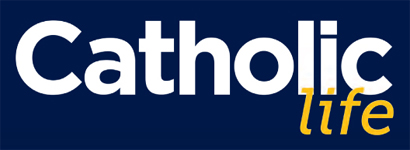Pornography, a significant threat to marriage and family life, is a world epidemic bringing in an annual revenue of $13.3 billion in the United States alone. According to recent statistics, 47% of parents in the U.S. report that pornography is a problem in their home. Statistics show that 11 is the average age of first exposure to internet porn. Nearly 90% of children between the ages of 8 and 16 have viewed porn while doing homework. Twenty-five percent of married women and 55% of married men say they view porn at least once a month. Further, in 56% of divorces today, a major contributing factor is one spouse’s continued use of pornography, and porn use has been correlated with a 300% increase in infidelity.
“It is time for the diocese to equip parents with practical strategies that can push back against the degradation and harms of pornography. It’s time for families to learn how to create a safe haven in their home.”
The Diocese of La Crosse is responding with an anti-pornography campaign called Safe Haven Sunday, to be held on March 10 at all parishes in our diocese. Within the context of the Mass, priests will address the harms of pornography in an age appropriate and effective way. Parish leadership will provide resources to support and protect individuals, marriages and families in making all homes safe havens.
Safe Haven Sunday is inspired by the United States Conference of Catholic Bishops’ formal statement Create in Me a Clean Heart: A Pastoral Response to Pornography, in which they explain, “The use of pornography by anyone in the home deprives the home of its role as a safe haven and has negative effects throughout a family’s life and across generations.”
The Office for Marriage and Family Life, under the direction of Alice Heinzen, is the main contact for the Safe Haven Sunday initiative. The Offices of Catholic Education, Catechesis and Evangelization, Youth and Young Adult Ministry, and Ministries and Social Concerns are collaborating by delivering information and resources that reveal the harms of pornography.
“Pornography is different now than it was 20 years ago,” said Heinzen. “Twenty years ago, very few homes had an internet connection. Now, the majority of homes are connected. In the past five years, the expansion of smartphones makes it possible to connect to the net 24/7. This type of access makes it easy to find and view porn at any age, at any time of the day for as long as you want. That’s why it is time for the diocese to equip parents with practical strategies that can push back against the degradation and harms of pornography. It’s time for families to learn how to create a safe haven in their home.”
For more information about Safe Haven Sunday, contact your local parish or the Office for Marriage and Family Life at [email protected]. To read Create in Me a Clean Heart in its entirety visit http://www.usccb.org/issues-and-action/human-life-and-dignity/pornography/index.cfm

